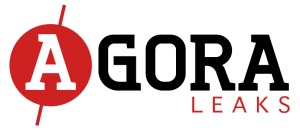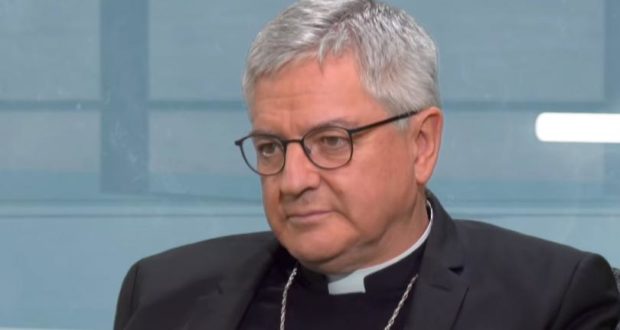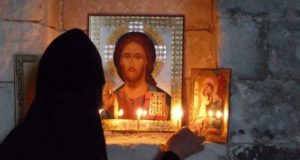إبحثوا عن الحقيقة بمحبة..
بصفتي أسقفًا، راعيًا مدعوًا لرعاية القطيع الذي أوكله لي الرب، أشارك عددًا متزايدًا من الناس الذين يشعرون بالذهول في مواجهة الذعر الصحي الحالي..✋
الحقيقة أن حرية الضمير على المحك هنا. والضمير يجب أن يكون مستنيرًا – لا يمكن إجبار أي شخص على التصرف ضد ضميره
الكنيسة أصدرت حكمًا سلبيًا على استخدام الخلايا من الأجنة المجهضة في التجربة و تصنيع اللقاحات فماذا عن التعاون في الشر من مستخدمي هذه اللقاحات؟ هذا سؤال أخلاقي لا يمكن تجنبه.
الضغط اليومي للخطاب الإعلامي يعمل كحافز للتلقيح مع التناقضات في الخطاب العام، أدى بالعديد من المواطنين إلى الشك والتشكيك.. وإقامة حالة من “التمييز” بين الملقحين وغير الملقحين ، وتحريض الأول على جعل الأخير يشعر بالذنب ، لإدانته يرقى إلى الموت الاجتماعي.
لا يمكننا الوثوق بالسلطات العامة والسلطات الصحية دون المعلومات الكافية والتمييز.
اختارت الكنيسة الكاثوليكية في فرنسا في الغالب نهجًا متوافقًا مع رواية COVID-19 ، سيما بخصوص دعمه الواسع لقيود COVID وسياسة اللقاحات الحكومية، من دون حتى إدانة التطعيم الإلزامي للعاملين الصحيين والأشخاص في المهن المماثلة التي سيصبح قانونًا بحلول 15 سبتمبر إذا لم تعترض المحكمة الدستورية الفرنسية.
ومع ذلك ، أعرب أحد الأساقفة الشجعان عن مخاوفه: الأسقف مارك إيليت من بايون Marc Aillet of Bayonne…
بحكمة ولكن بحزم ، يطرح بيانه الطويل الذي نُشر يوم الجمعة الماضي على موقع الأبرشية عددًا من الأسئلة التي تتحدى تعامل الحكومة الفرنسية مع أزمة فيروس كورونا ، خاصة فيما يتعلق بالتطعيمات ومتطلبات “تصريح صحي” شديد التمييز يتم إقتراحه في فرنسا.
“الممر الصحي” يعني الحاجة إلى إظهار دليل على التطعيم أو COVID سلبي أقل من 48 ساعة من أجل الوصول إلى الأماكن الثقافية والترفيهية الداخلية والخارجية حيث يتجمع أكثر من 50 شخصًا. إذا دخل القانون الأخير الذي تم تبنيه يوم الأحد حيز التنفيذ ، إلى جانب التطعيم الإلزامي للمهن الصحية المذكورة أعلاه ، فسيكون التصريح مطلوبًا لدخول مطعم، أو فندق، ومستشفيات ومراكز طبية (باستثناء حالات الطوارئ) ، والنقل العام لمسافات طويلة ، يرقى هذا إلى شبه إغلاق لمن لم يتلقوا التطعيم.
قال الأسقف إيليت إن الالتزام بتقديم تصريح صحي ، “يثير تساؤلات في كثير من الأوساط ، بما في ذلك بين المسؤولين المنتخبين من جميع الأطياف ، فيما يتعلق بنظام التمييز والشك والرقابة المتبادلة التي سيتم وضعها”.
كما شدد Aillet على حقيقة أن العديد من الأشخاص الذين يتلقون حاليًا لقاح COVID التجريبي يأخذون اللقاح تحت الإكراه ، حتى لا يفقدوا وظائفهم ، ولا يعرضوا عائلاتهم للخطر ، أو للتمتع بحرية الذهاب إلى المطاعم والسينما ، أو في الرحلات “. وتحدث عن “الموت الاجتماعي” الذي يلحق بالذين يقاومون “الإعلام” وحوافز “الخطاب العام” لتلقي الحقن.
على عكس الأساقفة الفرنسيين الآخرين (وحتى التعليقات العامة للأخويات والمعاهد الكاثوليكية التقليدية) ، أثار إيليت أيضًا مسألة القبول الأخلاقي لـ “اللقاح” ، متسائلاً عما إذا كان بالفعل نوعًا من “العلاج الجيني” ويذكر المشكلة التي يطرحها استخدام الخلايا الملوثة بالإجهاض في اختباره أو تطويره أو إنتاجه. دون إعطاء إجابة مباشرة ، أشار الأسقف إلى الاستنكاف الضميري وشرعيته.
يقول:
عنصر الصالح العام الذي يجب على الدولة أن تأخذه على محمل الجد ، ولكن لا يمكن إجبار أي شخص على التصرف ضد ضميره. والحقيقة أن حرية الضمير على المحك هنا. لكن الضمير يجب أن يكون مستنيرًا ومستنيرًا. الآن ، سمح لي التحقيق الذي أجرته أكاديمية الأبرشية للحياة باكتشاف قدر هائل من المعلومات حول الوباء العالمي ، الذي يؤثر على السكان منذ ما يقرب من عامين ، وحول الوسائل الموصى بها للقضاء عليه ، والتي لا يتم إحضارها دائمًا لاهتمام الجمهور من قبل وسائل الإعلام الرئيسية.
يضيف:
يتعلق السؤال الأخير بالاستخدام المؤكد ، على الأقل بالنسبة للقاح AstraZeneca ، حيث لا توجد نشرة معلومات حول تكوين اللقاحات الثلاثة الأخرى – وهو أمر غريب ، على أقل تقدير – لخلايا الأجنة المجهضة. نشر مجمع عقيدة الإيمان “ملاحظة حول أخلاقيات استخدام بعض اللقاحات المضادة لـ COVID-19” في 20 ديسمبر 2020. السؤال ليس جديدًا ، لأن اللقاحات الأخرى التي تم تداولها منذ الستينيات (ضد الحصبة الألمانية ، جدري الماء ، التهاب الكبد A ، والهربس النطاقي) ، مما دفع الكنيسة للتعبير عن رأيها في الماضي. أحدث وثيقة استشهدت بها مذكرة 2020 هي تعليمات مجمع عقيدة الإيمان ، Dignitas personae ، في 8 ديسمبر 2008. إذا كان من الواضح أن الكنيسة أصدرت حكمًا سلبيًا على استخدام الخلايا من الأجنة المجهضة في التجربة و تصنيع اللقاحات فماذا عن التعاون في الشر من مستخدمي هذه اللقاحات؟ هذا سؤال أخلاقي لا يمكن تجنبه.
لكن الأسقف أشار أيضًا إلى العديد من الأسئلة الأخرى التي تجعل الناس يشكون أو يرفضون الترويج الحصري للحكومة “للقاح”. تم ذكر عدد الوفيات ، والخطورة الموضوعية للمرض ، ووجود علاجات فعالة في شكل الاستفهام ، ولكن إذا أخذنا معًا ، فإن السؤال لا يترك مجالًا للشك في عدم قبول إيليت للرواية الرسمية.
وختم بيانه حول “الحريات الأساسية”.
فيما يلي ترجمة LifeSite الكاملة لتصريح المطران مارك إيليت:
بيان حول الأزمة الصحية
رسالة MSGR. مارك إيليت إلى مجتمعات ديوسيسان في بايون وليسكار وأولورون حول وباء COVID-19
الإخوة والأخوات الأعزاء ،
إن المشكلة التي تطرحها العدوى العالمية لفيروس COVID-19 حاليًا لا يمكن أن تترك الكنيسة غير مبالية بالمرض والضيق الأخلاقي للسكان.
الوضع معقد. شعور عميق بعدم الارتياح
بصفتي أسقفًا ، أي بصفتي راعيًا مدعوًا لرعاية القطيع الذي أوكله لي الرب ، أشارك عددًا متزايدًا من الناس الذين يشعرون بالذهول في مواجهة الذعر الصحي الحالي. إن الحلول التي أوصت بها الحكومة لاحتواء الوباء ، باستخدام العديد من وسائل الإعلام والموارد التشريعية ، حتى لو كانت قائمة على نية جديرة بالثناء لضمان السلامة العامة ، تسبب ضائقة نفسية وأخلاقية للكثيرين. إذا تم تقديم التطعيم من قبل السلطات السياسية والسلطات الصحية على أنه الطريقة الوحيدة لوقف الوباء ، فإن القيود الموضوعة بمرسوم أو التي هي قيد المناقشة في البرلمان – التطعيم الإلزامي لبعض المهن ، تصريح صحي لأماكن معينة أو أنشطة الحياة اليومية – طرح أسئلة لعدد كبير من الأشخاص الذين يخشون على الحفاظ على حرياتهم.
في حين تم إقناع العديد من المواطنين بالحوافز الحكومية ونصائح العديد من الأطباء الذين يتصرفون بحسن نية ، فإن آخرين يأخذون اللقاح تحت الإكراه ، حتى لا يفقدوا وظائفهم ، ولا يعرضوا عائلاتهم للخطر ، أو للتمتع بحرية الذهاب إلى المطاعم أو السينما أو في الرحلات … يثير الالتزام بتقديم تصريح صحي تساؤلات في العديد من الأوساط ، بما في ذلك بين المسؤولين المنتخبين من جميع الفئات ، فيما يتعلق بنظام التمييز والريبة والرقابة المتبادلة التي سيتم وضعها . والمناقشات الحية في مجلس الأمة تشهد على ذلك. حتى أن عضوًا من الأغلبية ، عارض التمرير الصحي ، ندد بخطر “انقسام المجتمع” أمام اللجنة التشريعية.
إن الضغط اليومي للخطاب الإعلامي ، والذي يعمل كحافز للتلقيح ، وكذلك التقريبات والتناقضات في الخطاب العام ، قد أدى بالعديد من إخواننا المواطنين إلى الشك والتشكيك ، بل وحتى تصلب المواقف وردود الفعل التي لا تخلو من القلق. سيكون من المضر بالسلام والتماسك الاجتماعي إقامة حالة من “التمييز” بين الملقحين وغير الملقحين ، وحتى تحريض الأول على جعل الأخير يشعر بالذنب ، وتهميشهم وإدانتهم بما يرقى إلى الموت الاجتماعي. في كلا الجانبين ، يتم اللعب بالخوف أحيانًا ، ويتم دفع الناس أحيانًا إلى اللاعقلانية.
لا يمر يوم لا أشعر فيه بهذا القلق العميق ، مناخ التوتر هذا. وحتى الاستياء الذي يؤثر على الكثير من الأشخاص الذين ألتقي بهم. كما أنني لا أخفي قلقي عندما أرى بذور الانقسام في العائلات والمجتمعات والمجموعات حيث أصبحت مسألة التطعيم موضوعًا محظورًا بشكل تدريجي ، لدرجة أنها تبدو موضع خلاف.
المعلومات في خدمة حرية الضمير
ستكون قد فهمت أنه ليس في نيتي أن أخبر أي شخص بما يجب أن يفعله ، أو اتخاذ موقف دوغمائي مع اللقاح أو ضده. لكن من واجبي كقس أن أدعوك إلى الهدوء ، مع احترام كبير للجميع ، مهما كان خيارك ، من خلال رفض وصم أولئك الذين يتخذون خيارات أخرى. تتمثل مهمة الكنيسة في التراجع والدعوة إلى مناقشة سلمية ، والأفضل من ذلك: تنوير الضمائر من أجل تفضيل “الموافقة الحرة والمستنيرة” التي يتطلبها القانون. مع الأخذ في الاعتبار الثلاثية المعروفة للفكر الاجتماعي للكنيسة (انظر ، قاضي ، تصرف) ، كان علي المضي قدمًا ، بمساعدة أعضاء “أكاديمية الأبرشية للحياة” ، لإجراء الكثير من الأبحاث ، واختيار الاستخدام فقط المعلومات المرجعية الواردة من الدوائر الرسمية للدولة الفرنسية أو من دول أخرى أو من مؤسسات دولية. تم هذا الاختيار حتى لو لم يكن هناك نقص في العلماء البارزين والأطباء وغيرهم من المهنيين الصحيين والقانونيين الذين ينبهون ، بطريقة هادئة وبناءة ، السلطات العامة والسكان إلى الوسائل البديلة للقاح والمرور الصحي إلى احتواء الوباء والوصول إلى الحصانة الجماعية ، دون المساس بالحريات العامة.
لا أعتزم أن أنكر بأي شكل من الأشكال أن الأمن الصحي هو عنصر أساسي من الصالح العام الذي يجب أن تأخذه الدولة على محمل الجد ، ولكن لا يمكن إجبار أي شخص على التصرف ضد ضميره. والحقيقة أن حرية الضمير على المحك هنا. لكن الضمير يجب أن يكون مستنيرًا ومستنيرًا. الآن ، سمح لي التحقيق الذي أجرته أكاديمية الأبرشية للحياة باكتشاف قدر هائل من المعلومات حول الوباء العالمي ، الذي يؤثر على السكان منذ ما يقرب من عامين ، وحول الوسائل الموصى بها للقضاء عليه ، والتي لا يتم إحضارها دائمًا لاهتمام الجمهور من قبل وسائل الإعلام الرئيسية.
هناك أفعال أو اختيارات خاطئة دائمًا ولا يمكن لأي قانون أن يبررها. هناك ببساطة تمييز يجب القيام به على نسبة الوسائل المنفذة للوصول إلى الغاية ، حتى عندما تكون جديرة بالثناء ، التي اختارها المرء.
وضعية الاستجواب
سأكتفي هنا بتبني موقف “الاستجواب” ، الذي قاله رئيس الجمهورية ، في خطابه في برناردينز في 9 أبريل 2018 ، إنه يتوقعه من الكنيسة. الأسئلة التي أطرحها على نفسي ، والتي ربما تكون وقحة ، هي تلك التي أسمعها بانتظام من حولي.
قيل لنا أن التطعيم هو السبيل الوحيد ، في الوضع الحالي ، لوقف الوباء وتحقيق مناعة القطيع. ولكن ماذا عن العلاجات الحالية والفعالة أو وسائل الوقاية الأخرى الموصى بها لتقوية دفاعاتنا المناعية الطبيعية؟ هل صحيح أن هيدروكسي كلوروكين ، الذي تم حظره في فرنسا بمرسوم ، تم ترخيصه في دول أوروبية أخرى؟ ماذا عن الإيفرمكتين ، الذي يبدو أنه قد تم إثبات فعاليته؟ ماذا عن حرية الأطباء في وصف العلاجات ضد مرض كوفيد -19؟
يتردد صدى كلمة “لقاح” في اللاوعي الجماعي كتقدم لا يمكن إنكاره جلب فوائد عظيمة للبشرية. فكر فقط في اللقاح ضد التيتانوس ، والذي لم نجد له بعد علاجًا لتجنب الموت المحتوم. هل وباء COVID-19 من نفس الترتيب ، وهل خطر الموت منه قابل للمقارنة؟ هل معدل الوفيات مقلق بشكل خاص؟ هل عدد الإصابات يزيد أضعافا مضاعفة من عدد الوفيات؟ هل تحمي اللقاحات من “المتغيرات”؟
هل اللقاحات المطروحة حاليًا في فرنسا لقاحات أم “علاجات جينية” مبتكرة؟ لماذا منحت الوكالة الأوروبية للأدوية ، تليها الوكالة الوطنية الفرنسية لسلامة الأدوية ، تصريح تسويق “مشروط” فقط ولماذا تم إعفاء شركات الأدوية من التعويض عن الآثار الضارة؟ إذا كانت المرحلة التجريبية الثالثة لشركة فايزر ، على سبيل المثال ، ستنتهي فقط في أكتوبر 2023 ، فهل هذا يعني أن هناك سببًا للخوف على سلامة الدواء على المدى المتوسط أو الطويل؟ هل تم الإبلاغ عن أحداث سلبية ، حتى قاتلة منها ، منذ استخدام هذه “اللقاحات” وهل طُلب من الأطباء المعالجين إبلاغ مرضاهم بهذه المخاطر؟ لماذا لا يتم التذرع بـ “المبدأ الوقائي” بينما هو منتشر في الخطاب العام عندما يتعلق الأمر بحماية البيئة؟
يتعلق السؤال الأخير بالاستخدام المؤكد ، على الأقل بالنسبة للقاح AstraZeneca ، حيث لا توجد نشرة معلومات حول تكوين اللقاحات الثلاثة الأخرى – وهو أمر غريب ، على أقل تقدير – لخلايا الأجنة المجهضة. نشر مجمع عقيدة الإيمان “ملاحظة حول أخلاقيات استخدام لقاحات معينة” في 20 ديسمبر 2020. السؤال ليس جديدًا ، لأن اللقاحات الأخرى التي تم تداولها منذ الستينيات (ضد الحصبة الألمانية ، جدري الماء ، التهاب الكبد A ، والقوباء المنطقية) ، قد اقترحت بالفعل على الكنيسة للتعبير عن رأيها في الماضي. أحدث وثيقة استشهدت بها مذكرة 2020 هي تعليمات مجمع عقيدة الإيمان ، Dignitas personae ، في 8 ديسمبر 2008. إذا كان من الواضح أن الكنيسة أصدرت حكمًا سلبيًا على استخدام الخلايا من الأجنة المجهضة في التجربة و تصنيع اللقاحات فماذا عن التعاون في الشر من مستخدمي هذه اللقاحات؟ هذا سؤال أخلاقي لا يمكن تجنبه.
أخيرًا ، غالبًا ما يتم تقديم تصريح الصرف الصحي بطريقة إيثارية ، باعتباره ضروريًا لمنع الأشخاص غير الملقحين من تلويث الآخرين ، على سبيل المثال عملاء مطعم أو الأشخاص الأكثر ضعفًا الذين نتعامل معهم. لكن إذا تم تطعيم هؤلاء الأشخاص ، فما الخطر الذي يواجهونه؟ علاوة على ذلك ، هل يقي اللقاح المضاد لـ COVID من التلوث وانتقال الفيروس؟ الخطاب العام غير واضح: في مذكرة لمجلس الدولة في 28 مارس 2021 ، أكد وزير الصحة ، بحجج داعمة ، أن الخطر يبقى دائمًا على الأشخاص الملقحين ، لكن رئيس الوزراء في خطابه في 21 يوليو. على محطة تلفزيون TFI ، أكد دون غموض أن الملقحين محميون. من يجب تصديقه؟ وإذا كان اللقاح لا يقي ، فلماذا يتم إدخال التطعيم إلى أماكن معينة أكثر من غير الملقحة؟ هل قمنا بتقييم القيود التي سيضعها الممر الصحي على المواطنين في حياتهم اليومية؟ ألا يمثل في النهاية تفويضًا مقنَّعًا للتحصين؟
كيف يمكننا التوفيق بين النصوص القانونية الموجودة ، والتي منذ قانون نورمبرغ تحظر جميع تعليمات التطعيم؟ على الرغم من أنه في 8 أبريل 2021 ، سمح قرار من المحكمة الأوروبية لحقوق الإنسان (ECHR) بالتطعيم الإجباري في ظل ظروف معينة ، إلا أن قرارًا صادرًا عن الجمعية البرلمانية لمجلس أوروبا ، تم التصويت عليه في 27 يناير 2021 ، من قبل جميع دول يطلب المجتمع ، بما في ذلك فرنسا ، “ضمان إبلاغ المواطنين بأن التطعيم ليس إلزاميًا وأن لا أحد يتعرض لضغط سياسي أو اجتماعي أو أي ضغط آخر للحصول على التطعيم إذا لم يرغب في ذلك” (7.3.1) و “تأكد من عدم تعرض أي شخص للتمييز بسبب عدم تلقيحه ، بسبب المخاطر الصحية المحتملة أو عدم الرغبة في التطعيم” (7.3.2). ماذا يجب ان نفكر في هذا؟
هذه هي الأسئلة التي أسمعها ، وأطرح أسئلتي عن طيب خاطر. يمكن لأولئك الذين يرغبون في الرجوع إلى المذكرة الإعلامية لأكاديمية الأبرشية للحياة أن يطلبوها على عنوان البريد الإلكتروني التالي:
Academiepourlavie@diocese64.org. مثل أي مواطن ، لا يمكننا اتخاذ قرار بشأن هذه الأسئلة دون تفكير ، كما لا يمكننا الوثوق بالسلطات العامة والسلطات الصحية دون المعلومات الكافية والتمييز. لا يمكن أن تتخذ الاختيارات الحاسمة للغاية للسلامة العامة إلا بضمير حي.
بما أنني أدعوكم إلى عدم الاستسلام للانقسام بيننا ، وتجنب الحكم على بعضنا البعض والبحث دائمًا عن الحقيقة في المحبة ، أدعو الله أن ينيرنا على المواقف الصحيحة التي يجب أن نتبناها ، في ضوء الصالح العام والدفاع. من حرياتنا الأساسية التي تشكل أساسها.
دعونا نصلي من أجل السلطات العامة أن تتخذ قرارات جيدة وعادلة ، ولنطلب من الرب بشفاعة العذراء مريم أن يضع حداً لهذا الوباء.
- مارك إيليت ، 23 يوليو 2021
French bishop: Many get vaccinated ‘under coercion, in order not to lose their jobs’
‘If the Church obviously passes negative judgment on the use of cells from aborted fetuses in the experimentation and manufacture of vaccines, what about the cooperation in evil of the users of these vaccines?


The Catholic Church in France has predominantly chosen a compliant approach to the COVID-19 narrative, and its hierarchy has made clear its wide support for COVID restrictions and the government’s vaccine policy, not even condemning mandatory vaccination of health workers and people in assimilated professions that will become law by September 15 if the French Constitutional Court does not object. One courageous bishop, however, has expressed his concerns: Bishop Marc Aillet of Bayonne, Lescar and Oloron on the southern Atlantic coast.
Prudently but firmly, his long statement published last Friday on the diocese’s website poses a number of questions that challenge the French government’s handling of the COVID crisis, especially concerning vaccinations and the requirement of a severely discriminating “sanitary pass” being set up in France.
The “sanitary pass” means having to show proof of vaccination or a negative COVID under 48 hours old in order to access indoor and outdoor cultural and leisure venues where more than 50 people congregate. If the recent law adopted on Sunday enters into effect, besides mandatory vaccination for health professions mentioned above, the pass will be required in order to enter a restaurant or a bar, a hotel with communal facilities, hospitals and medical centers (except for emergencies), and long-distance public transportation, this amounts to a near lockdown for the unvaccinated.
The obligation to present a sanitary pass, said Bishop Aillet, “is raising questions in many quarters, including among elected officials of all stripes, as to the system of discrimination, suspicion, and mutual control that will be put in place.”
Aillet also underscored the fact that many people who are presently receiving the experimental COVID vaccine are taking the jab “under coercion, in order not to lose their jobs, not to jeopardize their families, or to enjoy the freedom to go to restaurants, the cinema, or on trips.” He spoke of the “social death” that is being inflicted on those who are resisting “media” and “public discourse” incentives to receive the injection.
Contrary to the other French bishops (and even the public comments of traditional Catholic fraternities and institutes), Aillet is also raising the issue of the moral acceptability of the “vaccine,” asking whether it is indeed a kind of “gene therapy” and recalling the problem posed by the use of abortion-tainted cells in its testing, development or, production. Without giving a straight answer, the bishop referenced conscientious objection and its legitimacy.
He stated:
I do not intend to deny in any way that sanitary security is a fundamental element of the Common Good that the State must take seriously, but no one can be forced to act against his or her conscience. And it is indeed freedom of conscience that is at stake here. But conscience must be enlightened and informed. Now, the investigation carried out by the Diocesan Academy for Life has allowed me to discover a mass of information on the worldwide epidemic, which has been impacting populations for nearly two years, and on the means recommended to eradicate it, which are not always brought to the public’s attention by the mainstream media.
He added:
The last question concerns the proven use, at least for the AstraZeneca vaccine, since there is no information leaflet on the composition of the other three vaccines — which is strange, to say the least — of cells from aborted fetuses. The Congregation for the Doctrine of the Faith published a “Note on the morality of using some anti-COVID-19 vaccines” on December 20, 2020. The question is not new, since other vaccines that have been circulating since the 1960s (against rubella, chickenpox, hepatitis A, and shingles), have already led the Church to express its opinion in the past. The most recent document cited by the 2020 Note is the Instruction of the Congregation for the Doctrine of the Faith, Dignitas personae, of December 8, 2008. If the Church obviously passes negative judgment on the use of cells from aborted fetuses in the experimentation and manufacture of vaccines, what about the cooperation in evil of the users of these vaccines? This is an ethical question that cannot be avoided.
But the bishop also recalled many other questions that make people doubt or reject the government’s exclusive promotion of the “vaccine.” The number of deaths, the objective gravity of the disease, the existence of efficient therapies were all mentioned in the interrogative form, but taken together the question leaves no doubt as to Aillet’s non-acceptance of the official narrative.
The conclusion of his statement is about “fundamental freedoms.”
Here below is LifeSite’s complete translation of Bishop Marc Aillet’s statement:
Communiqué on the health crisis
LETTER OF MSGR. MARC AILLET TO THE DIOCESAN COMMUNITIES OF BAYONNE, LESCAR AND OLORON, ON THE COVID-19 EPIDEMIC
Dear brothers and sisters,
The problem that the worldwide contagion of the COVID-19 virus is currently posing cannot leave the Church indifferent to the disease and to the moral distress of the populations.
The situation is complex; a deep sense of unease
As a bishop, that is to say as a pastor called upon to take care of the flock entrusted to me by the Lord, I share the concern of a growing number of people who are distraught in the face of the current sanitary panic. The solutions recommended by the Government to contain the epidemic, using many media and legislative resources, even if they are based on the laudable intention of guaranteeing public safety, are causing psychological and moral distress to many. If vaccination is presented by the political powers and the health authorities as the only way to stop the epidemic, the constraints put in place by decree or that are under discussion in the Parliament — mandatory vaccination for certain professions, a sanitary pass for certain places or activities of daily life — raise questions for a significant number of people who fear for the preservation of their freedoms.
While many citizens have been persuaded by government incentives and by the advice of many doctors acting in good faith, others are taking the vaccine under coercion, in order not to lose their jobs, not to jeopardize their families, or to enjoy the freedom to go to restaurants, the cinema, or on trips … The obligation to present a sanitary pass is raising questions in many quarters, including among elected officials of all stripes, as to the system of discrimination, suspicion, and mutual control that will be put in place. The lively discussions in the National Assembly bear witness to this. A member of the majority, opposing the sanitary pass, even denounced the risk of “splitting society” before the legislative commission.
The daily pressure of the media discourse, which functions as an incentive to vaccinate, as well as the approximations and contradictions of the public discourse, have led many of our fellow citizens to doubt and to skepticism, and even to hardening of attitudes and reactions that are not without concern. It would be detrimental to peace and social cohesion to establish a situation of “discrimination” between the vaccinated and the non-vaccinated, even inciting the former to make the latter feel guilty, marginalizing them and condemning them to what amounts to social death. On both sides of the argument, fear is sometimes played on, and people are sometimes pushed into irrationality.
Not a day goes by in which I do not feel this deep unease, this climate of tension; and even the resentment that affects many people I meet. I also do not hide my concern when I see the seeds of division in families, communities and groups where the question of vaccination is gradually becoming a taboo subject, so much so that it appears to be a bone of contention.
Information at the service of freedom of conscience
You will have understood that it is not my intention to tell anyone what they should do, nor to take a dogmatic position for or against the vaccine. But it is my duty as a pastor to invite you to be serene, with the greatest respect for all, whatever your option, by refusing to stigmatize those who make other choices. It is the mission of the Church to take a step back and invite to a peaceful debate, better still: to enlighten consciences in order to favor the “free and informed consent” required by the Law. Taking up the well-known trilogy of the Church’s social thought (see, judge, act), I had to proceed, with the help of members of the “Diocesan Academy for Life,” to do a lot of research, choosing to use only referenced information, coming from the official services of the French State, from other States or from international institutions. This choice was made even if there is no lack of eminent scientists, doctors and other health professionals and jurists who alert, in a serene and constructive way, the public authorities and the populations on the alternative means to the vaccine and to the sanitary pass to contain the epidemic and to reach collective immunity, without infringing on public liberties.
I do not intend to deny in any way that sanitary security is a fundamental element of the Common Good that the State must take seriously, but no one can be forced to act against his or her conscience. And it is indeed freedom of conscience that is at stake here. But conscience must be enlightened and informed. Now, the investigation carried out by the Diocesan Academy for Life has allowed me to discover a mass of information on the worldwide epidemic, which has been impacting populations for nearly two years, and on the means recommended to eradicate it, which are not always brought to the public’s attention by the mainstream media.
There are acts or choices that are always wrong and that no law can justify. There is more simply a discernment to be made on the proportion of the means implemented to reach the end, even when it is praiseworthy, that one has chosen.
The questioning posture
I be content here with adopting a “questioning” posture, which the President of the Republic, in his speech at the Bernardins on April 9, 2018, had said he expected from the Church. The questions I am asking myself, which are perhaps impertinent, are those that I regularly hear around me.
We are told that vaccination is the only way, in the current situation, to stop the epidemic and achieve herd immunity. But what about existing and effective treatments or other means of prevention recommended to strengthen our natural immune defenses? Is it true that hydroxychloroquine, which has been banned in France by decree, has been authorized in other European countries? What about Ivermectin, whose effectiveness appears to have been proved? What about the freedom of doctors to prescribe treatments against COVID-19?
The word “vaccine” resonates in the collective unconscious as an undeniable progress that has brought great benefits to humanity. Just think of the vaccine against Tetanus, for which we still haven’t found a treatment to avoid an inevitable death. Is the COVID-19 epidemic of the same order, and is the risk of dying from it comparable? Is the mortality rate particularly worrying? Does the number of infections exponentially increase the number of deaths? Do vaccines protect against “variants”?
Are the vaccines currently on the market in France vaccines or innovative “gene therapies”? Why has the European Medicines Agency, followed by the French National Medicines Safety Agency, granted only a “conditional” Marketing Authorization (MA) and why have pharmaceutical companies been exempted from compensation for adverse effects? If the experimental phase 3 for Pfizer, for example, will only end in October 2023, does this mean that there is reason to fear for the safety of the drug in the medium or long term? Have adverse events, even fatal ones, been reported since the use of these “vaccines” and have treating physicians been asked to inform their patients of these risks? Why is the “precautionary principle” not being invoked while it is so prevalent in the public discourse when it comes to the protection of the environment?
The last question concerns the proven use, at least for the AstraZeneca vaccine, since there is no information leaflet on the composition of the other three vaccines — which is strange, to say the least — of cells from aborted fetuses. The Congregation for the Doctrine of the Faith published a “Note on the morality of the use of certain vaccines” on December 20, 2020. The question is not new, since other vaccines that have been circulating since the 1960s (against rubella, chickenpox, hepatitis A, and shingles), have already suggested to the Church to express its opinion in the past. The most recent document cited by the 2020 Note is the Instruction of the Congregation for the Doctrine of the Faith, Dignitas personae, of December 8, 2008. If the Church obviously passes negative judgment on the use of cells from aborted fetuses in the experimentation and manufacture of vaccines, what about the cooperation in evil of the users of these vaccines? This is an ethical question that cannot be avoided.
Lastly, the sanitary pass is often presented in an altruistic way, as being necessary to prevent non-vaccinated people from contaminating others, for example the clients of a restaurant or the most vulnerable people with whom we come into contact. But if these people are vaccinated, what risk do they face? Moreover, does the anti-COVID vaccine protect against contamination and transmission of the virus? The public discourse is not clear: In a memorandum to the Council of State of March 28, 2021, the Minister of Health asserted, with supporting arguments, that a risk always remains for vaccinated people, but the Prime Minister in his speech of July 21 on TFI TV station, asserted without ambiguity that the vaccinated are protected. Who is to be believed? And if the vaccine does not protect, why should the vaccinated be admitted to certain places more than the non-vaccinated? Have we assessed the constraints that the sanitary pass will place on citizens in their daily lives? Does it not ultimately represent a disguised vaccination mandate?
How can we reconcile existing legal texts, that ever since the Nuremberg Code prohibit all vaccination mandates? Although on April 8, 2021, a decision of the ECHR (European Court of Human Rights) authorized compulsory vaccination under certain conditions, a resolution of the Parliamentary Assembly of the Council of Europe, voted on January 27, 2021, by all the countries of the Community, including France, asks to “ensure that citizens are informed that the vaccination is not mandatory and that no one is under political, social or other pressure to be vaccinated if they do not wish to do so’ (7.3.1) and “ensure that no one is discriminated against for not having been vaccinated, due to possible health risks or not wanting to be vaccinated” (7.3.2). What should we think about this?
These are the questions I hear, and willingly make my own. Those who would like to consult the Informative Note of the Diocesan Academy for Life can request it at the following e-mail address: academiepourlavie@diocese64.org. Like any citizen, we cannot decide on these questions without reflection, just as we cannot trust the public authorities and the health authorities without sufficient information and discernment. Choices that are so decisive for public safety can only be made in good conscience.
As I invite you not to give in to division among us, to avoid judging one another and always to seek the truth in charity, I pray the Lord to enlighten us on the right attitudes to adopt, in view of the Common Good and the defense of our fundamental freedoms which constitute its foundation.
Let us pray for the public authorities to make good and just decisions, and let us ask the Lord, through the intercession of the Virgin Mary, to put an end to this epidemic.
+ Marc Aillet, July 23, 2021
 Agoraleaks Agoraleaks
Agoraleaks Agoraleaks







